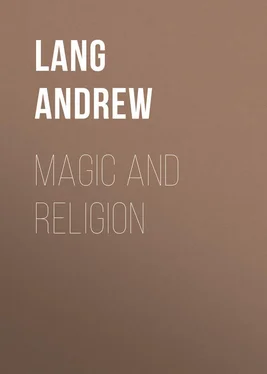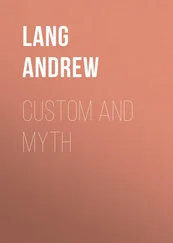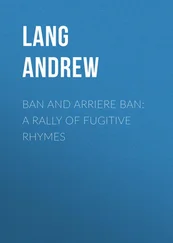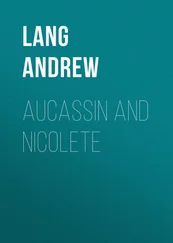Andrew Lang - Magic and Religion
Здесь есть возможность читать онлайн «Andrew Lang - Magic and Religion» — ознакомительный отрывок электронной книги совершенно бесплатно, а после прочтения отрывка купить полную версию. В некоторых случаях можно слушать аудио, скачать через торрент в формате fb2 и присутствует краткое содержание. Жанр: foreign_antique, foreign_prose, на английском языке. Описание произведения, (предисловие) а так же отзывы посетителей доступны на портале библиотеки ЛибКат.
- Название:Magic and Religion
- Автор:
- Жанр:
- Год:неизвестен
- ISBN:нет данных
- Рейтинг книги:4 / 5. Голосов: 1
-
Избранное:Добавить в избранное
- Отзывы:
-
Ваша оценка:
- 80
- 1
- 2
- 3
- 4
- 5
Magic and Religion: краткое содержание, описание и аннотация
Предлагаем к чтению аннотацию, описание, краткое содержание или предисловие (зависит от того, что написал сам автор книги «Magic and Religion»). Если вы не нашли необходимую информацию о книге — напишите в комментариях, мы постараемся отыскать её.
Magic and Religion — читать онлайн ознакомительный отрывок
Ниже представлен текст книги, разбитый по страницам. Система сохранения места последней прочитанной страницы, позволяет с удобством читать онлайн бесплатно книгу «Magic and Religion», без необходимости каждый раз заново искать на чём Вы остановились. Поставьте закладку, и сможете в любой момент перейти на страницу, на которой закончили чтение.
Интервал:
Закладка:
The evidence for what most people call 'religion' among the Australian natives is so far from scanty that one finds it when looking for other matters, as I am going to show. True, in the following report the religion does not answer to Mr. Frazer's definition, no powerful being is here said to be conciliated or propitiated: he is only said to exist and favour morality. But Mr. Frazer's definition, if pressed, produces the effect of arguing in a vicious circle. His theory asserts that powerful beings are only invented by man, in view of man's tardy discovery that his own magic is powerless. The invented beings are then propitiated, for selfish ends, and that, by the definition, is religion.
If we produce, as we do, evidence that the belief in powerful beings has been evolved, and yet that these beings are certainly not propitiated by sacrifice, and seldom if ever by prayer, that they are only won by conduct, and by rites not involving sacrifice, Mr. Frazer can reply, 'Perhaps; but by my definition that kind of belief is not religion.' Then what is it? 'What else can you call it?' Its existence, if proved, is fatal to Mr. Frazer's theory of the origin of religion in the despair of magic, because the faithful of the belief of which I speak do not usually implore the god to do for them what magic has failed to do. Their belief satisfies their speculative and moral needs: it does not exist to supply their temporal wants. Yet it is none the less, but much the more, a religion on that account, except by Mr. Frazer's definition. If religion is to be defined as he defines it, 'a propitiation or conciliation of powers superior to man,' and so on, religion can only have arisen as it does in his theory, setting aside a supernormal revelation. But if we do not deny the name of religion to the speculative belief in a power superior to man, and to the moral belief that he lends a supernormal sanction to conduct, and to the emotional belief that he loves his children, then the belief is religion, but something other than religion as defined by Mr. Frazer. Nobody will deny the name of religion to such a belief. Mr. Frazer says: 'I would ask those who dissent from my conclusions to make sure that they mean the same thing by religion that I do; for otherwise the difference between us may be more apparent than real.' 97 97 G. B . i. xvii.
I mean by religion what Mr. Frazer means – and more. The conciliation of higher powers by prayer and sacrifice is religion, but it need not be the whole of religion. The belief in a higher power who sanctions conduct, and is a father and a loving one to mankind, is also religion; few, if any, will dispute the fact. But this belief, if unaccompanied, as in Australia, by prayer and sacrifice, cannot be accounted for on Mr. Frazer's theory: that religion was invented, for worldly ends, after the recognised failure of magic, which aimed at the same ends fruitlessly. It is only by limiting his definition of religion, as he does, that he can establish his theory of the origin of religion. It is only by omitting mention of the evidence for what nobody else can deny to be religion, that he can secure his theory.
I return to my additional evidence for Australian religion. As will be seen, it does not come within Mr. Frazer's definition, but will anybody deny that the belief is religious? The evidence is that of Mr. A. L. P. Cameron, 98 98 J. A. I. , 1885, pp. 344-370.
and contains a brief comparative glossary of words used by different tribes of New South Wales to indicate the same objects. Mr. Cameron had been interested in the black fellows since 1868 at least, when their numbers were much larger than at present. He had seen gatherings of from 800 to 1,000. The tribes chiefly in question dwelt along the Murrumbidgee and Murray rivers, and do not include the Kamilaroi, the Kurnai, and Coast Murring of whom Mr. Howitt speaks.
As to religion, ghosts of the dead are believed to visit the earth, and to be frequently seen. The blacks 'will often resort to peculiar devices to avoid mentioning the names of the dead,' a practice hostile to the development of ancestor worship. No ghost of a man can grow into a god if his name is tabooed and therefore forgotten. 'The people of all these tribes appear to have a belief in a Deity, and in a future state of some kind.' The Wathi Wathi call this being Tha-tha-pali; the Ta-ta-thi call him Tulong. Mr. Cameron could not obtain translations of these names, any more than we know the meaning of the names Apollo or Artemis. The being 'is regarded as a powerful spirit, or perhaps a supreme supernatural being. They say that he came from the far north, and now lives in the sky. He told each tribe what language they were to speak. He made men, women, and dogs, and the latter used to talk, but he took the power of speech from them. The Ta-ta-thi do not care to speak much of Tulong, and say that he does not often come to the earth. Although it seems that in many of the Australian tribes there is only a very dim idea as to the attributes of the Supreme Being and of a future state, yet in the Ta-ta-thi and its allied tribes there is certainly a belief not only in a future state of existence, but also in a system of rewards and punishments. My Ta-ta-thi informant stated that one of the doctors ascended long ago through the sky, and there saw a place where wicked men were roasted.'
Mr. Cameron, of course, had the strongest suspicions of a 'place' so ostensibly Christian. To this we return. 99 99 Parenthetically, I may remark that many beliefs as to the future state originate in, or are confirmed by, visions of 'doctors' who visit the Hades or Paradise of a tribe, and by reports of men given up for dead, who recover and narrate their experiences. The case of Montezuma's aunt is familiar to readers of Mr. Prescott's Conquest of Mexico . The new religion of the Sioux is based on a similar vision. Anthropologists have given slight attention to these circumstances.
These tribes practise the Bora rites or initiatory mysteries. If women witness them 'the penalty is death. The penalty for revealing the secrets is probably the same.' Mr. Cameron, unlike Mr. Howitt, has not been initiated, and does not know the full secret. The presiding being (like the Twanyirika of the Arunta) is called Thuremlin, who, I conjecture, is Daramulun in his subordinate capacity. 'Their belief in the power of Thuremlin is undoubted, whereas the Arunta adults do not appear to believe in Twanyirika, a mere bugbear of the women and children. The bull roarer is Kalari, or among the Ta-ta-thi Kalk [or Kallak] – that is to say, "word."' Concerning the instruction given to the boys, and described by Mr. Howitt, Mr. Cameron, not being initiated, gives no information.
As to the future life, Mr. Cameron received his account from a tribesman named Makogo, 'an intelligent member of the Wathi Wathi tribe.' The belief was that current 'before his people came into contact with Europeans, and Makogo expressed an opinion that, whether right or wrong, they would have been better off now had their beliefs never been disturbed.' Probably Makogo was right. The beliefs were in a future state of reward or punishment. European contact does not import but destroy the native form of this creed.
The Wathi Wathi belief answers in character to the creeds expressed in the Egyptian Book of the Dead, the Fijian hymns, the famous Orphic gold talisman of Petilia, the Red Indian belief published by Kohl, and to many other examples. 100 100 See my Modern Mythology , and introduction to my Homeric Hymns .
The Way of Souls, as in these ancient or savage beliefs, is beset by dangers and temptations, to which the Egyptian Book of the Dead is a guide-book. If any one desires to maintain that this Australian idea, held before contact with Europeans, and now to some extent abandoned after that contact, is of Christian origin (we know this argument), he must suppose that the Wathi Wathi adapted the idea from our old 'Lyke Wake Dirge:'
Интервал:
Закладка:
Похожие книги на «Magic and Religion»
Представляем Вашему вниманию похожие книги на «Magic and Religion» списком для выбора. Мы отобрали схожую по названию и смыслу литературу в надежде предоставить читателям больше вариантов отыскать новые, интересные, ещё непрочитанные произведения.
Обсуждение, отзывы о книге «Magic and Religion» и просто собственные мнения читателей. Оставьте ваши комментарии, напишите, что Вы думаете о произведении, его смысле или главных героях. Укажите что конкретно понравилось, а что нет, и почему Вы так считаете.












